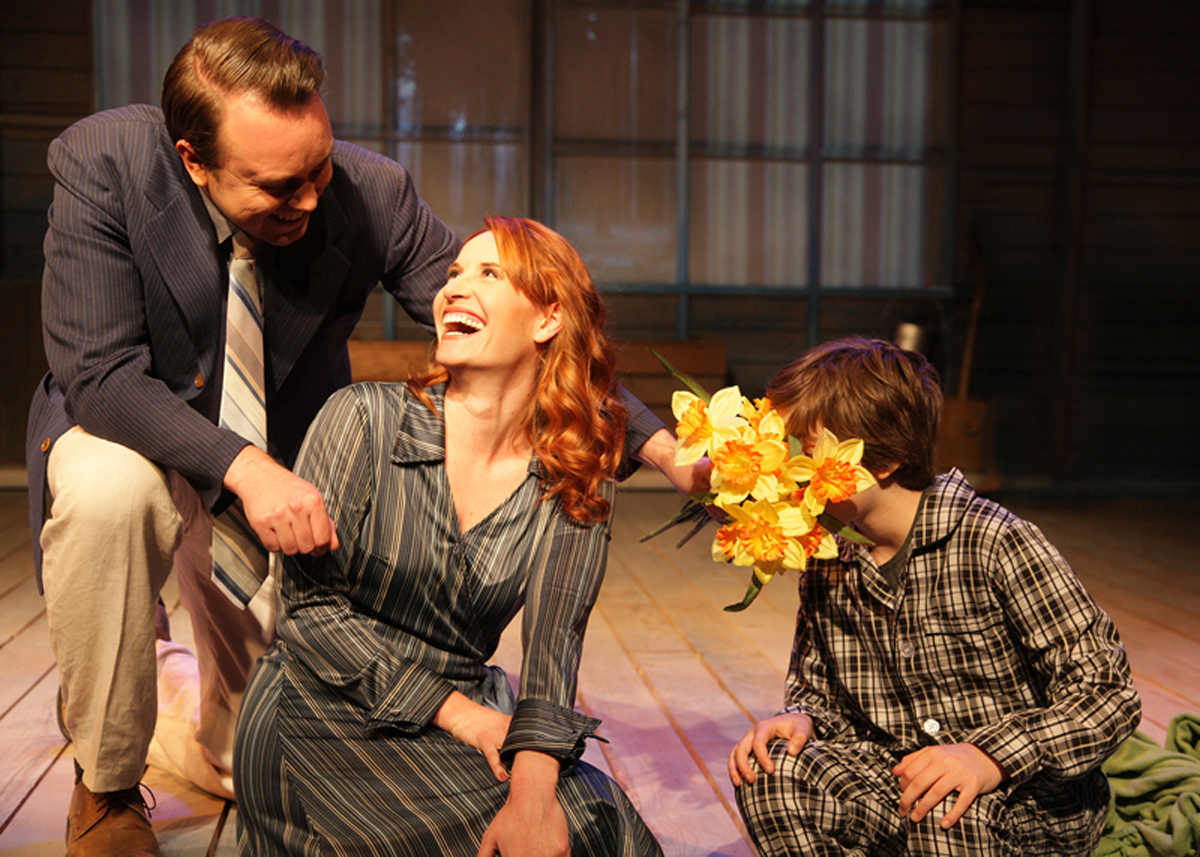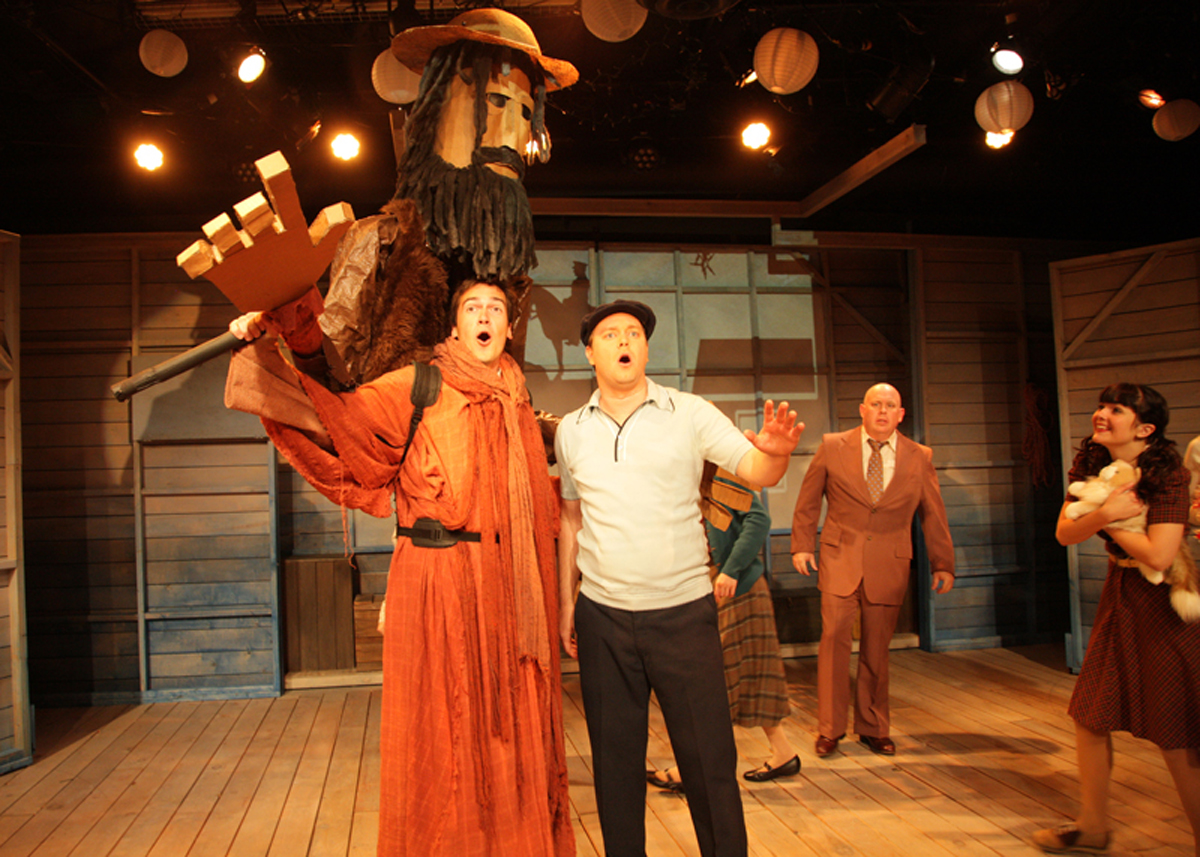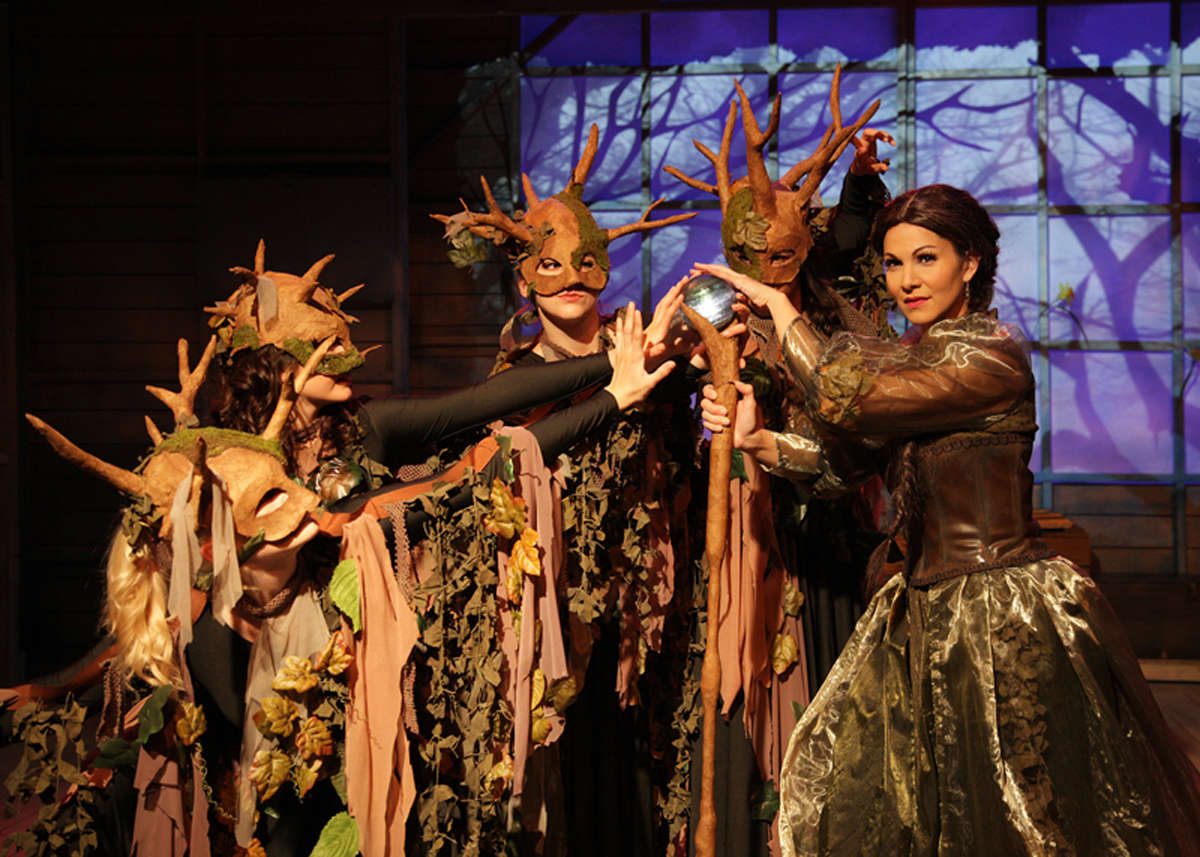
There is absolutely nothing wrong with director Oanh Nguyen’s staging of Big Fish, a musical adaptation of the 2003 Tim Burton-directed film and the 1998 novel it was based on. The music and singing is top-notch, the choreography and technical elements spot-on, and the entire affair shows that the Chance, which long ago emerged as Orange County’s most professional and polished theater not named South Coast Repertory, needs to worry less about maturing and evolving than about merely building on the solid foundation it has created.
Why, then, does this show feel so disappointing? Let’s blame the story. It’s kind of a Forrest Gump-meets-father-and-son-coming-to-terms tale, with a lot of stuff about the power of stories and the conflict between objective reality versus subjective reality. The subjective reality is the stories that Edward Bloom (a powerful, multitalented Jeff Lowe) has told his son throughout his life: tall, outlandish “fish” tales that may have a kernel of truth, but whose details are so elaborately spun that his son, Will (Jared Price), feels he has never come close to learning the objective reality about his dad. Basically, he doesn’t truly know his father and wonders if all the tales, which always feature Edward as the hero, are obscuring some dark, uncomfortable truth.
The concern over who his dad really is hits hyper-drive for Will when Edward is diagnosed with a life-threatening illness. Will becomes hellbent on finding out something real about him, whether that means interrogating his father or plumbing through old records to find something, anything that might help him make sense of his father’s life.

That’s all fine, and in other hands, it might have lent itself to some powerful storytelling. But Andrew Lippa, who wrote the music and lyrics, and John August, who wrote the book, uneasily pivot the play on two tracks: the fantastic tales spun by Edward and the conflict between father and son. And the two rarely seem to run in the same direction. It feels as if you’re watching two different plays, two divergent stories that never seem to truly coalesce. We never discover why Edward has been compelled to write his story so large or why he has been so evasive toward his son for so long. It’s kind of left up to the audience to decide.
But leaving things open to the mind of the viewer in a show such as this, a musical, can be problematic. It’s not because people who love musicals—which is undeniably the target audience of this show—don’t know how to think, but rather because most musicals aren’t concerned with making people think. And it’s those times, when we aren’t called to wrestle over who Edward is, that this show works best. Nguyen has a flair for visual storytelling, and for the first act chapters, which center on some of Edward’s more bizarre tales—from meeting a witch who shows him a glimpse of how he will die to luring a menacing giant out of his cave and into the human community to meeting mermaids and werewolves who run circuses—that talent is in full display. Graced by Kelly Todd’s choreography, Bradley Lock’s costume design and a slew of other designers, the tall-tale sequences are surreal and captivating.
Where things miss a beat is the dramatic through-line between Edward and Will. There’s little going on here to visually gussy-up the proceedings, and with the feeble dramaturgy, there’s little Nguyen and company can do other than get these things out of the way for the next big visual number, something lacking in a second act that seems superfluous much of the time.

Just as Nguyen and his technical crew have nothing to hang their heads about, neither does the talented cast. There isn’t a weak link in the ensemble, and, as mentioned, Lowe delivers a stupendous and likeable performance as Edward. Laura M. Hathaway, who plays his loving wife, is also exceptional. In fact, the entire ensemble, whether playing larger-than-life characters in the story sequences or more down-to-Earth townsfolk, all have their share of moments.
But, ultimately, that’s all Big Fish is: a series of moments, some more memorable than others. And maybe that’s the point, although it seems to work against the mostly ebullient nature of this show: Most of us don’t leave big stories, big ideas or big things behind. All we leave are impressions, fragments, stories that others tell about us based on their memories and experiences. We all flash for a moment, then fade away, and maybe the best any of us can ask is that some of the moments in that flash are things that other people can treasure.
Big Fish at the Chance Theater, 5522 E. La Palma Ave., Anaheim, (888) 455-4212; chancetheater.com. Thurs., 7:30 p.m.; Fri., 8 p.m.; Sat., 3 & 8 p.m.; Sun., 3 p.m. Through July 29. $35-$45.
Joel Beers has written about theater and other stuff for this infernal rag since its very first issue in, when was that again???

